by Lazar Berman
The timing and content of the US president’s address were curious, as was Netanyahu’s reaction; that may have been by design
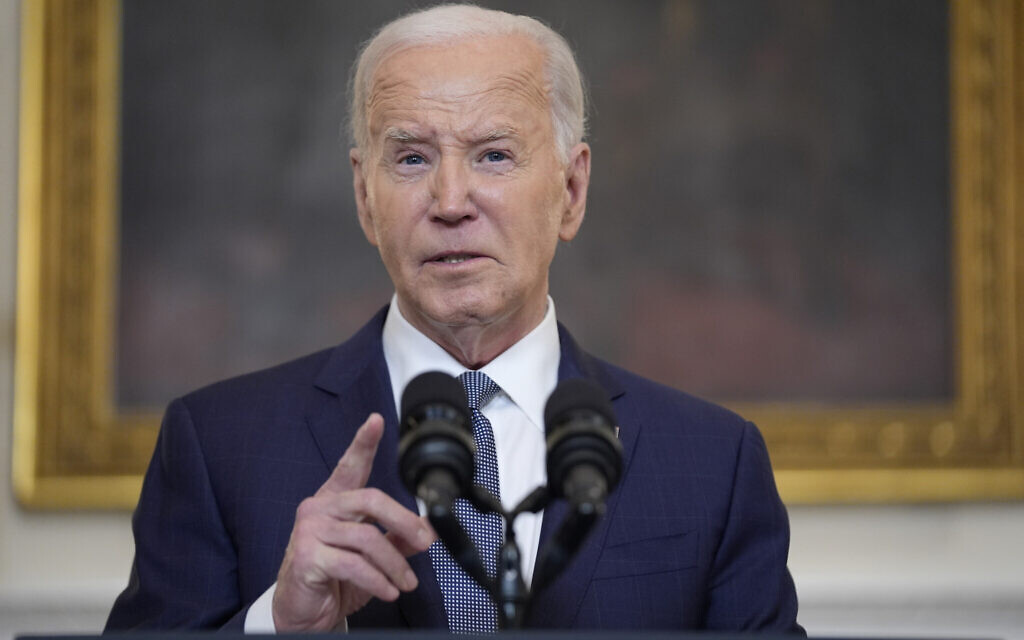 |
President Joe Biden delivers remarks on the Middle
East, from the State Dining Room of the White House, May 31, 2024, in
Washington. (AP Photo/Evan Vucci) |
On Friday, as many Israelis were enjoying their post-Shabbat-dinner slumber, US President Joe Biden stepped up to the microphones in the White House State Dining Room to deliver a potentially game-changing address.
He presented what he called the latest Israeli proposal for a deal with Hamas to “bring all the hostages home, ensure Israel’s security, create a better day after in Gaza without Hamas in power, and set the stage for a political settlement that provides a better future for Israelis and Palestinians alike.”
In his 15-minute speech, Biden laid out a three-phase plan that would result in the release of all hostages, the end of the war, and a rebuilding of the Gaza Strip without Hamas in power.
But the president’s attempt to create a “decisive moment” to close down the fighting and move to the “day after” left fundamental questions unanswered.
It is precisely those issues that will determine whether a deal is even possible, and whether it will achieve Israel’s war aims of freeing the hostages and toppling Hamas… or be the recipe for the return of a more lethal and determined Hamas.
New and Israeli?
For starters, Biden plainly did not present a complete accounting of Israel’s latest proposal, and it remains unclear whether he was seeking to nudge the Israeli leadership toward terms it has not accepted.
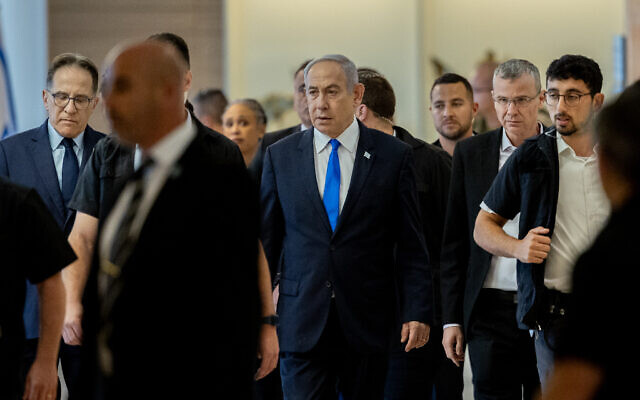
In his speech, Biden called it a “comprehensive new proposal” offered by Israel. If it is indeed new, when was it agreed upon by Israel’s war cabinet?
Channel 13 reported that Prime Minister Benjamin Netanyahu 11 days ago allowed Israel’s negotiating team to discuss a “prolonged ceasefire” in its indirect negotiations with Hamas, and that Biden’s speech in part constituted the “outing” of the Israeli proposal as approved by the war cabinet several days ago.
It also said the military censor in recent days prevented publication of aspects of Israel’s position.
The Kan public broadcaster reported that during a meeting last Sunday, the war cabinet was split over Hamas’s demand that Israel end the war as part of a hostage deal, with some ministers believing that there is room for negotiation on the matter while Netanyahu saw it as tantamount to surrendering to the terror group.
Western officials also told Israel last week that it should test Hamas leader Yahya Sinwar’s response to a potential proposal that would include a long-term ceasefire, the reconstruction of Gaza, a governing mechanism for the Strip that does not involve the terror group, and the exile of its leaders, according to Channel 12.
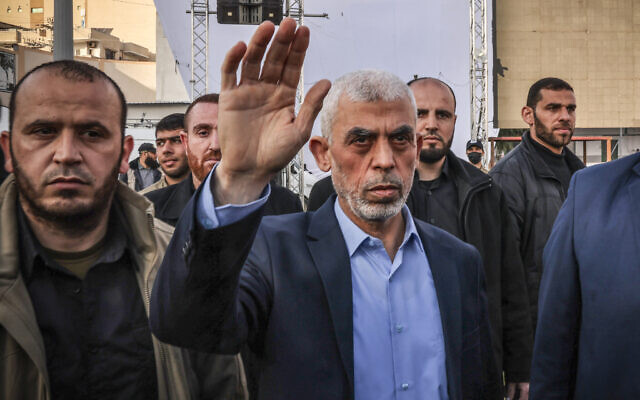
The war cabinet meeting last week appeared to be a discussion of the terms Mossad chief David Barnea presented to CIA Director William Burns and Qatar’s Prime Minister Mohammed bin Abdulrahman al-Thani in Paris days before. A senior Israeli official told The Times of Israel at the time that talks would restart based on “new proposals led by the mediators Egypt and Qatar, with active involvement of the US.”
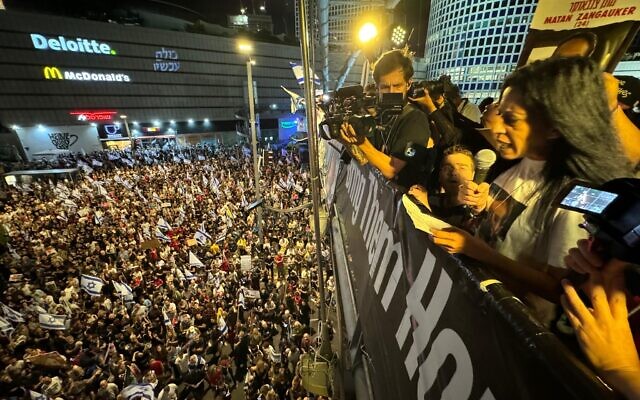
If it was indeed a new proposal, was it fully Israel’s?
The Israeli reaction was fairly ambiguous on that account.
In a statement issued immediately after Biden’s speech, Netanyahu’s office said, “The Israeli government is united in the desire to return our hostages as soon as possible and is working to achieve this goal.”
“Therefore, the prime minister authorized the negotiating team to present an outline for achieving this goal, while insisting that the war will not end until all of its goals are achieved, including the return of all our hostages and the elimination of Hamas’s military and governmental capabilities,” the statement continued.
“The exact outline proposed by Israel, including the conditional transition from stage to stage, allows Israel to maintain these principles,” the statement added.
Netanyahu’s office did not clarify whether its proposal is the same one described by Biden during his speech — and did not refer directly to Biden’s speech at all.
Asked whether the deal described by Netanyahu’s office is the same one Biden laid out in his speech, a senior Biden administration official briefing reporters avoided answering directly: “I have no doubt that the deal will be characterized by Israel and will be characterized by Hamas, but we know what’s in the deal. We know what the expectations are.”
Likewise, an Israeli official avoided answering the question, telling The Times of Israel on Saturday night only that “Israel’s conditions for the end of the war have not changed.”
In an interview with Britain’s Sunday Times newspaper, Netanyahu’s diplomatic adviser Ophir Falk seemed to indicate that the proposal did not originate in Jerusalem. He characterized it as “a deal we agreed to — it’s not a good deal, but we dearly want the hostages released, all of them.”
Hebrew media outlets on Saturday night presented various accounts, with Channel 12 saying the White House gave the PMO and Ambassador Mike Herzog some specifics about the speech about two or three hours before Biden delivered it, and Channel 13 claiming some in the PMO were angered that Israel was not substantively updated.
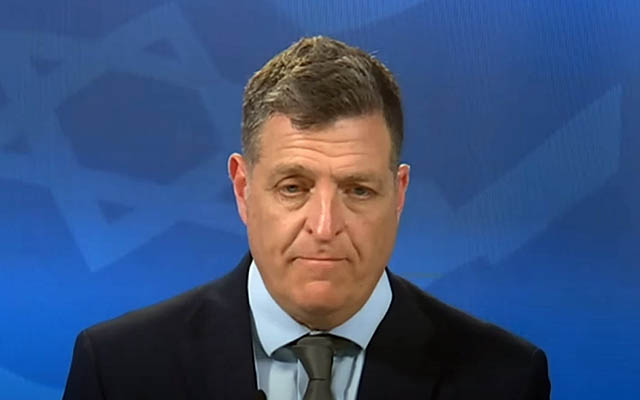
The timing of the speech is also notable. It came the day after former president and current contender Donald Trump was convicted of a felony, meaning that it received scant coverage in the US.
It also was presented after the Sabbath had begun in Israel, giving Israeli officials the better part of a day to respond.
And Biden made his remarks just before Netanyahu was officially invited to address a joint session of Congress.
The scheduling would seem to indicate that it was done in coordination with Netanyahu. But one Israeli source told The Times of Israel that the prime minister was effectively “blindsided” by the speech.
Devil in the details
More significantly, the proposal that Biden proffered is hazy on crucial details.
He said the first, six-week phase would include “a full and complete ceasefire,” but did not lay out what exactly that meant. Would one rocket fired on Sderot mean the ceasefire was over? What if it was launched by Palestinian Islamic Jihad and not Hamas? Could Israel retaliate?

Biden also said Israel would conduct “a withdrawal of Israeli forces from all populated areas of Gaza” in the first stage. Does that include the Netzarim corridor splitting Gaza in two? What about the recently conquered Philadelphi Corridor?
He promised that IDF troops would fully withdraw from Gaza in phase two. But Israel has been creating a buffer zone along the border inside of the Strip, complete with new infrastructure meant to enable a long-term Israeli security presence there. Would this be abandoned as well?
The president stressed that only Palestinian civilians would be allowed to return to their homes in northern Gaza. But who would ensure that is the case if IDF troops had pulled back from the main arteries from southern Gaza? This could be a recipe for Hamas to reassert control across the Strip.
Biden also said that if negotiations to move to a permanent ceasefire take longer than the six weeks allotted for phase one, the ceasefire “will still continue as long as negotiations continue.” That could constitute a clear incentive for Hamas to buy time by stalling, equivocating, and asking for further clarifications to keep the façade of talks alive as long as possible, with no intention of releasing the remaining hostages.
Furthermore, Biden did not spell out how many hostages would be released in the first stage, and on what schedule. The Hamas offer from a month ago sought a timeline that would see fewer than half of the 33 phase one “humanitarian” hostages released in the first month, after the terror group had already gained major concessions.

Hamas also demanded that all prisoners from the 2011 Gilad Shalit deal who were subsequently rearrested — meaning they had gone right back to terrorism — be freed. And it was not open to an Israeli demand that Jerusalem be able to veto which security prisoners would be barred from returning to the West Bank.
Releasing unrepentant terrorists into the West Bank would risk supercharging Hamas, unleashing a new wave of terror, and dangerously undermining the same Palestinian Authority that, once reformed, Biden wants to see running Gaza soon, and a Palestinian state in the future.
On these important elements, too, Biden was silent.
The incredible vanishing Hamas
Perhaps the most problematic part of the Israel/Biden proposal is his prediction that it would yield “a better ‘day after’ in Gaza without Hamas in power.”
We know that Hamas is determined to remain in power, and it sees the hostages as its guarantee that it will survive the Israeli campaign. Military pressure seems to be the only conceivable way of uprooting Hamas, but the proposal is centered on a six-week pause to the war that turns into a permanent ceasefire.

What is the mechanism for ensuring that Hamas is no longer ruling Gaza? And even if it is not ruling the Strip somehow, will it be barred from any participation in the postwar rebuilding and administration of a region that harbors deep and broad support for the terrorist group?
“We don’t know Hamas’s post-war role,” warned Michael Oren, former Israeli ambassador to Washington.
For that matter, the Israeli government’s own promises regarding the talks are similarly silent about how Hamas is defeated if the military campaign stops.
“Israel’s conditions for the end of the war have not changed,” an Israeli official told The Times of Israel, listing them as “destroying Hamas military and civil capabilities, freeing the hostages, and ensuring that Gaza will no longer represent a threat to Israel.” The Israeli proposal, insisted the official, ensures that Israel can achieve all of these conditions before a permanent ceasefire takes effect.
But Hamas is nowhere close to being knocked out of the fight, and Israel would not be able to make significant gains in that direction during the temporary truce in phase one of a deal.

With so many open questions, and officials averse to answering them, one can only speculate about the overall aim.
Meanwhile, the president conspicuously failed to issue any threats against Hamas if it does not accept the offer. Biden said that this is Hamas’s opportunity “to prove whether they really mean it” when claiming to want a ceasefire — a rather improbable attempt to bridge the glaring problem that a deal that meets Israel’s core demands means it will not meet those of Hamas.
This is a zero-sum contest — either Hamas is toppled and Israel prevails, or Hamas retains its arms and retakes the Gaza Strip, a stunning defeat for the Jewish state. No speech of Biden’s can square that circle.
It is entirely possible that the president offered a deliberately vague proposal because he does not expect Hamas to hold up its end of the deal and release all prisoners while stepping aside. An offer open to interpretation could make it more likely that Hamas will at least assent to the first stage and release more hostages than it would have if Biden had not gone ahead with the speech.
Then Israel would be free to resume the long, hard work of destroying Hamas.
Lazar Berman
Source: https://www.timesofisrael.com/bidens-israeli-proposal-for-a-hostage-deal-leaves-key-questions-unanswered/
No comments:
Post a Comment